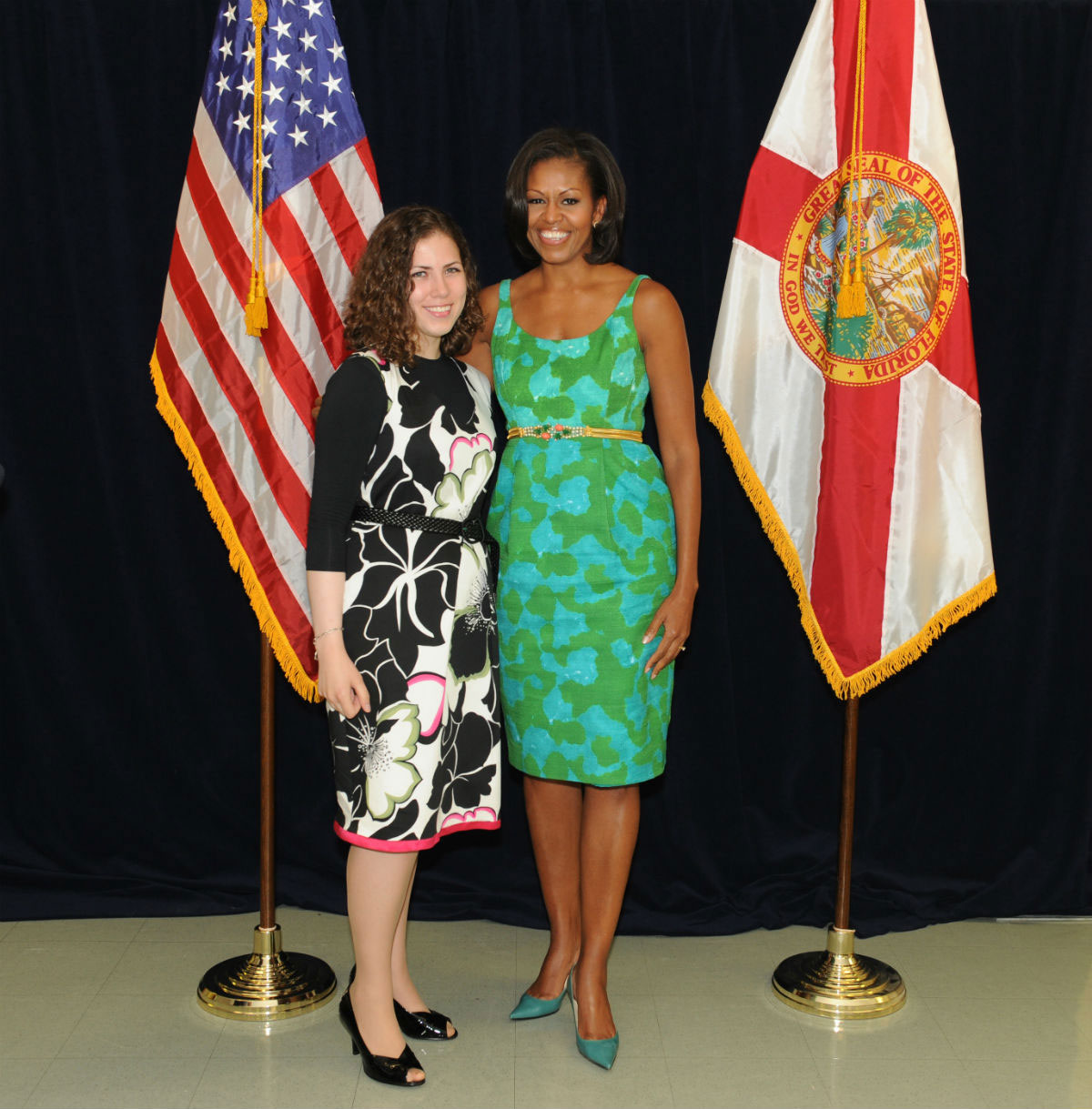An Unequal Proposal
LCW Student Raphaela Abramson to Present at Poli-Sci Conference

New York, N.Y. – For as long as she can remember, Raphaela “Raphi” Abramson has been bothered by inequality. Whether that inequality expressed itself as racism or an income gap didn’t matter, it got under her skin.
So much so that her senior thesis at Lander College for Women-The Anna Ruth and Mark Hasten School (LCW) has focused on the topic. And in April, she will be presenting that work, “Convincing the Poor They are Rich: Third Dimensional Power in American Politics,” at the New York State Political Science Association’s annual conference. The conference attracts scholars from across the United States, as well as from Central and Eastern Europe and South America.
A one-dimensional view of power involves the ability to influence decisions; a second-dimensional view, Abramson explains, allows one party to shape the agenda, not simply influence the outcome. But she says that third-dimensional power is the most insidious and dangerous form. “You have so much power that you can manipulate the agenda. You can make people believe that their interests are yours, even if they contradict one another.”
The paper she will present at the conference, hosted by St. Johns University at its downtown Manhattan campus, addresses the U.S. Supreme Court decision regarding Citizens United v. Federal Elections Commission (FEC). Citizens United, a conservative organization, sought an injunction against the FEC to allow it to air “Hillary: The Movie,” a film critical of Hillary Clinton. The Supreme Court ruled for Citizens United, effectively removing corporate limits on political contributions.
“They equated speech and money, so the idea is that the consequences were to increase third-dimensional power in the American system,” said Abramson, who grew up in Florida and attended the Bais Yaakov of Miami for high school. “We gave the extraordinarily wealthy so many more resources completely unavailable to the average person. It enables them to dictate the political agenda.”
“She wrote a graduate-level paper on one of the most controversial Supreme Court cases of the past 10 years,” said Thomas Rozinski, a professor of political science at LCW and Abramson’s thesis advisor. Rozinski, who was recently appointed director of the honors thesis program, said he expects more students to present their theses at professional conferences during the next academic year. He added that the honors thesis program will be upgraded to six credits.
“This will provide LCW students with more extensive instruction in research, organization and writing,” he says. “And it will enable our honors graduates to outperform their colleagues when they move on to graduate school or to their first job.”
Will Pinkney, president of the New York State Political Science Association, said that his organization wants to encourage more undergraduates to present at conferences.
“We give them a venue where they can get feedback and improve their work,” says Pinkney, who noted that 37 student-papers were accepted for last year’s conference. “Our mission is to promote scholarship and to encourage kids like this to go on and pursue questions and issues that affect our society. We want them to pursue graduate-level education and to create a network of scholars that can work off of each other.”
Abramson got her first taste for politics as a volunteer for then-Senator Barack Obama’s Dade County, Florida campaign office during the 2008 presidential election. During the president’s 2012 re-election campaign she served as the office’s deputy regional field director. She said that she is excited about her presentation and hopes her sense of justice will lead to a meaningful career.
“I’m not sure where I’ll be, but I hope I can continue to work in fields like this.”

